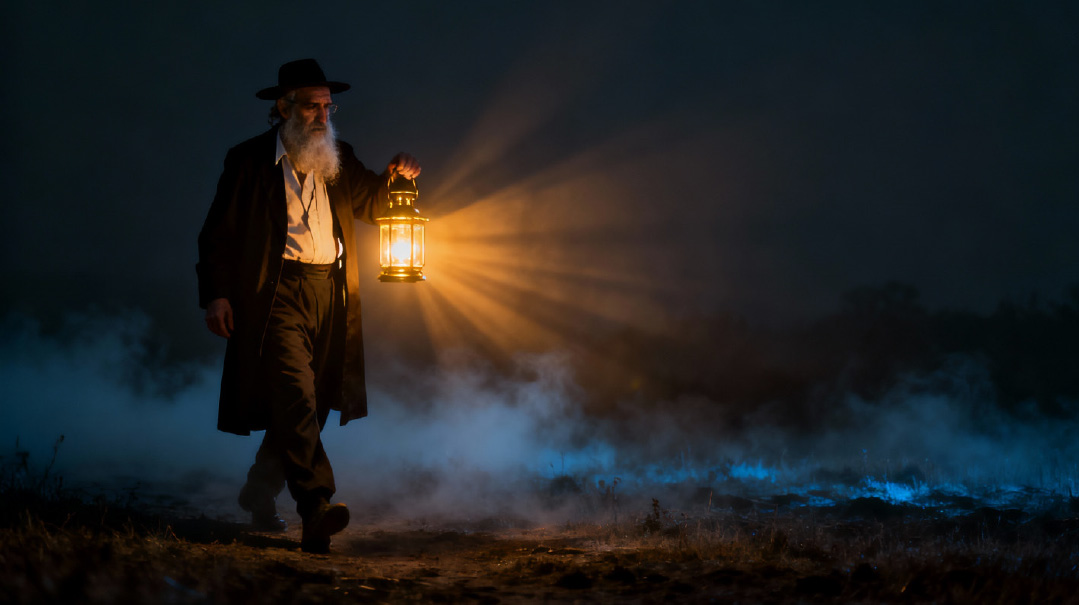Chicago Has Spoken — Should We Care?
| February 13, 2024It wasn’t about compassion for Palestinian civilian casualties or a burning desire for peace. It was about using the opportunity to express hatred for Jews
L
ast week, Chicago’s city council passed a “cease-fire” resolution, calling for Israel to indefinitely pause its military campaign against Gaza, even as Hamas continues to shell Israeli towns and hold 136 hostages. The day the vote was held, I was sitting in the council chambers, watching one of the most heated votes ever in my nine years of involvement in city politics. When the ultimate tally was called in favor of the resolution, those in favor celebrated, while those opposed felt a crushing sense of disappointment.
Now, as a legal matter, the City of Chicago’s jurisdiction extends only as far as the city’s municipal limits and certainly doesn’t bind a foreign military in a country on a different continent. So why, in fact, does the Chicago resolution matter? What, if any, significance does it have?
I’ve been surprised at the number of times I’ve been asked this question. The question itself is not surprising; it’s a valid one and deserves a good answer. I’ve only been surprised at the level of interest and engagement shown by people who usually don’t pay much attention to geopolitical matters. But once I thought about it, I realized that the answers to why the resolution matters and why so many people care about it are one and the same.
Support of Israel was once overwhelmingly strong on both sides of the political aisle. That support has unfortunately eroded among some elected Democrats who identify as progressives. (It has also weakened among some Republicans, especially among those of an isolationist bent.) One of the goals of the resolution’s proponents was to move the Democratic Party away from reflexive pro-Israel sentiments, and they arguably accomplished that. The passage of a measure perceived as anti-Israel normalizes the demonization of the Jewish State, which is certainly not a good thing. But that is not the most troubling aspect of what happened with this resolution.
The two primary objectives of Israel’s war — to liberate the hostages, and to eliminate the threat posed by Hamas and other terrorist organizations — are obviously necessary. Less obvious, though, is how best to accomplish those goals. As someone with no formal education or experience in military operations or foreign policy, I can’t possibly have a well-informed opinion. That, coupled with a lack of access to classified intelligence briefings, makes me ill-equipped to offer a better strategy for achieving these objectives in a way that minimizes risk to Israeli soldiers or civilians.
Others may know more and disagree. There is room for legitimate debate over whether there could be some kind of cease-fire under certain conditions. But while some of those calling for an immediate and unconditional cease-fire are motivated by compassion for loss of life in Gaza and have more insight than I do, others are motivated by good old-fashioned anti-Semitism.
Most Jew-hatred that comes from the left is disguised as criticism of the State of Israel, or even anti-Zionism. Sometimes it’s disguised so well, it’s hard to know where its true roots lie. This time, however, the mask came off entirely.
Nearly all pro-Palestinian protests calling for an immediate and unconditional cease-fire have had participants demanding the eradication of the Jewish People from “the river to the sea.” The same hordes who celebrated Hamas’s October 7 attack as an act of justifiable resistance, ripped down posters of innocent Jewish hostages, and ludicrously accused Israel of genocide, were helping fuel the charge to pass the recent cease-fire resolution.
Some of the political and grassroots leaders acting as driving forces behind the resolution were unwilling to clearly and unequivocally condemn (or even acknowledge) the unfathomable atrocities committed by Hamas on October 7. To paraphrase Congressman Ritchie Torres, a New York Democrat: Not everyone who supports a cease-fire is an anti-Semite, but every anti-Semite supports a cease-fire.
The resolution did not include any condemnation of or reference to Hamas’s heinous attacks that started the war in the first place. Nor did it stipulate that the kidnapped hostages must be released before the cessation of military operations. It did not acknowledge Israel’s right to defend itself.
And it was accompanied by a walkout at Chicago Public Schools, where Jewish students were bullied, harassed, and threatened.
As I sat in the chamber at City Hall while the resolution was being debated, I could hear the anti-Semitic rhetoric and hate-filled chants as they sucked up the gallery’s oxygen. The poisonous atmosphere was palpable.
For many resolution supporters, it wasn’t about compassion for Palestinian civilian casualties or a burning desire for peace. It was about using the opportunity to express hatred for Jews. That is something that we must always combat. We might not eradicate anti-Semitism, but silence allows the scourge to flourish in all its forms.
I don’t believe that the ultimate passage of the resolution is the most concerning aspect of what occurred. The worst part was that hate speech and unabashed anti-Semitism were ubiquitous throughout the process. Had the resolution passed with a large majority, it could have been indicative of a far more serious problem. It only passed through political machinations and parliamentary maneuvers, with a minority of aldermen supporting it (23 out of 50), many under immense political pressure. But pass it did, and the anti-Semites who pushed for it have been emboldened.
So, does it matter in any substantive way that the third-largest American city passed a non-binding resolution calling for a cease-fire? Not really, in my opinion.
Does it matter that the sewage of Jew-hatred has flooded the city of Chicago, pouring into City Hall, Chicago Public Schools, the streets of our neighborhoods and other public places? You betcha. That is the most troubling message coming from this resolution. That is why, whether they realized it or not, so many in our community took notice and sought to understand the resolution’s significance. It should serve as a warning to us all as to how thoroughly anti-Semitism has pervaded American society and penetrated the halls of our government.
Shlomo Soroka is the director of government affairs for Agudath Israel of Illinois. He focuses much of his political advocacy in the areas of education funding, public safety, and protecting religious freedoms. He has worked with lawmakers to pass and defeat numerous pieces of legislation that affect his local Chicago Jewish community and beyond.
(Originally featured in Mishpacha, Issue 999)
Oops! We could not locate your form.







